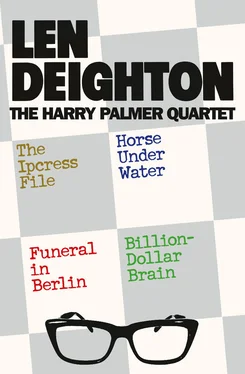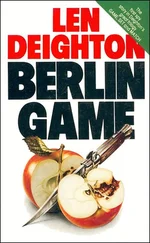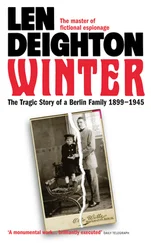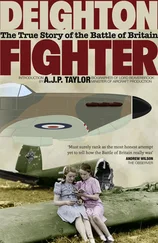The gravel crunched underfoot and an aeroplane winking coloured lights vibrated against the cloud. It had almost stopped raining, but the house shone wetly. The grounds were extensive and once across the path we plunged into the kitchen garden that lay alongside the house. The soles of my feet began to squelch as the soaked long grass sprinkled my legs, trousers and socks. We paused alongside the greenhouse through which the moon played shadow games, making mythical monsters of pots and beans and flowers. Every few seconds the house changed character, at one time menacing and sinister, and again the innocent abode of law-abiding citizens about to be attacked by my private army. The luminous watch said 9.11. Over the far side of the grounds I saw a movement by one of the policemen. The wind had dropped and now the aircraft had passed over it seemed very quiet and still. In the distance I heard a train. I stood there unhappily, my feet were wet and made little sucking sounds. I felt Murray touch my elbow with the cold metal jemmy. Looking round I found him pretending it was an accident. I took the hint. The side window was higher than it had looked from the road. Reaching up with the sticky brown paper I smoothed it across the glass and a little syrup ran down my wrist. Murray stuck the jemmy into the woodwork, but it was locked right enough. The window to the left was barred, so he hit the brown-paper-covered pane with the iron. A muffled syrupy crunch and then the broken glass fell inwards hinged on the brown paper. Murray was groping for the fastenings as we did a Charleston in slow motion on the flower-bed. The window swung open and Murray dived head first through. I saw the soles of his hand-made shoes (eighteen guineas) with a small sticky rectangular price tab still affixed under the instep. I passed the army pistol into his hand and followed.
The moonlight poked a finger into a small lounge; the furniture old and comfortable; the fireplace held an electric fire with plastic logs; and scattered across the sofa was some clothing. Suddenly a clock chimed loudly. Murray was out in the hallway. Down the staircase someone had dropped sheets of blue lined writing paper. I knew that the house was empty, but we continued to creep around until 9.28.
Except for a couple to look after the house, the policemen had all been packed off in the cars. The gambling party, we told them, had been cancelled at the last minute. Murray and I went down the road for a cup of ‘coffee’ in one of the Espresso palaces – rubber plants and buns to match. A sour-faced young waitress flung a smelly dishcloth around the table, said ‘Two cappercheeny,’ then went back to the three young men in black imitation-leather jackets and jeans, with genuine rivets, for a conversation about motor cycles.
[ Aquarius (Jan 20–Feb 19) Pay special attention to insurance arrangements. Romance may be expected to delay social commitments .]
I talked to Murray about everything except the job. Murray was a tall and large-muscled man who, had he been a few years younger, would have made a John Osborne hero. His face was large, square and bony, and it would be equally easy to imagine him as an RSM or the leader of a wildcat strike.
He was efficient and responsive to orders in a way that more than faintly criticized his superiors by its very efficacy. It reminded me of those NCOs who drilled officer cadets. His hair was tightly arranged across his lumpy skull. His eyes, thin slits, as though he constantly peered into brightness, would wrinkle and smile without provocation. Unlike Chico, Murray’s smile wasn’t motivated by a desire to join other men – it separated him quite deliberately from them. We talked about Bertold Brecht and the 1937 Firearms Act, and it amused Murray that I was probing around amongst his acquisition of knowledge. He’d not liked the peacetime army and it was understandable, there was no place in it for a man with a paperback edition of Kierkegaard in his pocket. The sergeants tried to talk like officers and the officers like gentlemen, he said. The mess was full of men who’d sit in a cinema all the weekend and come back with stories about house-parties on the river.
‘Georgian houses,’ Murray said, and he had a great love for beautiful buildings. ‘The only Georgian houses they’d ever been to were George the Fifth ones along the by-pass.’
By the time we had got back to 42 the fingerprint men and photographers had done their stuff and Chico and Ross had arrived. Ross resented my sudden rise to power and had got his department into the act probably via Keightley. Chico was wearing his short tweed overcoat with the gigantic pattern and looking like a bookies’ clerk. I noticed his chin had got those pimples again that I called ‘caviare rash’. He and Ross were poking about in the greenhouse when we arrived. I heard Ross say, ‘Mine aren’t coming on at all, I think it was the early frost.’ Chico countered this with a quote from his gardener, then we all started on 42.
You couldn’t find a house more normal than that one, as far as the rooms on the ground floor and first floor were concerned. Old wounded furniture, balding carpets and sullen wallpaper. The ultra-modern kitchen was well stocked with food, both fresh and tinned, and a machine that minced up waste and sluiced it away. The bathroom upstairs was unusually well-fitted for England – shower, scales, pink mirror and extensive indirect lighting. One room on the ground floor was equipped as an office and had in one corner a wooden phone-booth with glass panels and a little gadget that fitted into the phone dial which, when locked, prevented it being used.
A few books remained on the shelves, a Roget , a business directory, a thick blue-bound volume, the French edition of Plans of the Great Cities of the World showing Principal Roads and Exits , the AA Road Book, ABC Railway Guide, and a Chambers’s Dictionary .
The filing cases were so new that the paint squeaked. A couple of hundred blank file cards lay inside. I walked into the rose-wallpapered hall and upstairs. The staircase between the first and second floor had been removed. A cheap, unpainted wooden ladder poked its top into a dimly lit rectangle in the ceiling. Murray and Chico deferred to me in the matter of ascending. Ross was downstairs still checking the phone books for underlinings, finger-marks and page removals. I climbed the splintery ladder. As my head rose past the second-floor level I saw what the police cameraman had been talking about. The light from several unshaded 25-watt bulbs fell across the uneven wooden floor. Here and there plaster walls had been badly damaged and revealed brickwork inadequately distempered over. I hoisted my fourteen stone through the hatchway and augmented the dull glow with my torch. I looked into each of the little wooden rooms. Some of them had windows facing down into the cobbled centre courtyard – the central feature of the house built as a hollow square. The outward-facing windows were completely bricked up. Chico came up to me, bright-eyed; he’d found a pair of plimsolls, blue and white, size ten, in one room, and had a theory about the whole thing.
‘A small private zoo, sir. My cousin’s aunt, the Duchess of Winchester, let him build one, sir. Frightfully interesting. This would be for food, sir, this room. Those scrubbed buckets, sir, everything terribly clean. I helped him many weekends, sir. Then one time we had a stunning house-party there. I wish you had been there, I’m sure you would have been interested, sir.’ Chico’s adam’s apple had become more and more prominent as his voice pitch rose.
I was trying to do the most difficult job I’d ever heard about. To help me I had a rose-cultivator downstairs, and a refugee from the Royal Enclosure. A fine team to pit against half the world in arms.
Читать дальше












